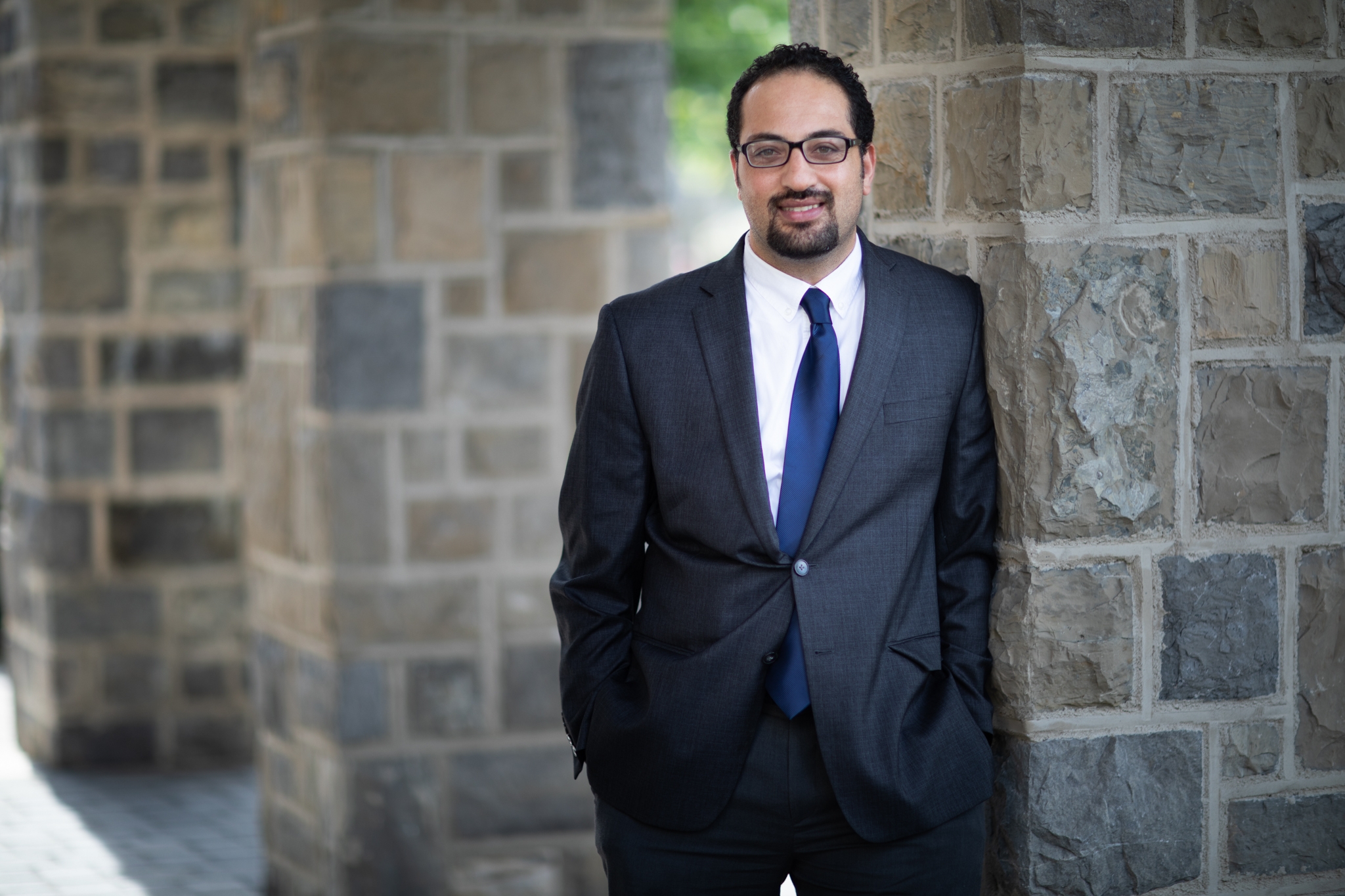Muataz Boker: Teaching Smarts: students, power grids, and actuators

Introducing Almuatazbellah Boker
- Joined ECE June 2019
- Assistant professor, Marshall University, West Virginia, 2016-2019
- Post-doctoral research scholar, North Carolina State University, 2014-2015
- Ph.D., electrical engineering, Michigan State University, 2013
- Assistant lecturer, University of Benghazi, Libya, 2004-2008
- M.S., control systems engineering, the University of Sheffield, UK, 2003
- B.Eng., mechatronics engineering, the University of Leeds, UK, 2002
Teaching Smarts: students, power grids, and actuators
ECE Collegiate Professor Almuatazbellah (Muataz) Boker is pushing the boundaries of modeling and control—and bringing students on the journey with him. While pursuing his research on nonlinear systems, he is helping ECE extend its reach from northern Virginia.
Teaching, says Boker, is his number one priority. “I am very excited about teaching students concepts related to control systems and systems theory in general.”
Since coming to Virginia Tech this year, he has led systems and control courses for graduate and undergraduate students that use dual-site and distance-learning technology. His students participate in his courses from classrooms in Arlington and Blacksburg, and remotely from other sites.
Some of his courses are taught entirely online. “It’s challenging because you have to keep thinking about how to keep the students engaged, how to encourage them to ask questions and interact,” he says. “It’s a challenge, but it’s exciting, because technology is creating so many new ways to connect.”
Boker has also been helping recruit students into the M.Eng. program and integrating some into his research projects. “Teaching concepts to students, and applying those concepts to solve meaningful problems, is what I enjoy,” he says, “I’m excited to involve students in my journey to solve these problems.”
A journey through smart control
Within the field of control theory, Boker has specialized in observer-based control of nonlinear systems, with applications from smart actuators to smart grids to new modeling approaches.
His doctoral research focused on controlling under-actuated systems where the number of actuators driving the system is less than the degrees of freedom the system has—a common situation in robotics.
With this background, Boker shifted his focus to analyzing interconnected systems that share a communications network, such as power and energy systems. Working on interconnected systems challenges, he was able to exploit the different timescales of subnetworks within the large network to distribute the modeling of the system.
“These complex systems are actually systems of systems, and networks of networks,” he explains. “We have to not only come up with a model for the large network, but also come up with models for the subnetworks. And these subnetworks have different timescales.” Boker and his team created simplified models of the subnetworks that could accurately predict how the whole system behaves, and therefore control it more efficiently.
Moving forward, Boker plans to continue with the modeling and control of interconnected systems. He plans to use a math-based approach to model and control systems, and merge it with a big data approach. “It’s obvious that our use of data as humans is increasing all the time. How can we use this abundant data to better model and control systems?” Boker asks.
Which approach he will use depends on the timescale. He plans to use the traditional math-based approach to model slow dynamics, and the data-driven techniques for dynamics with a faster timescale. “I’ll use both approaches to form a complete picture of how the system behaves, and how we can use this model to control its behavior,” he explains. His goal, he stresses, differs from current models in machine learning. “Right now in machine learning, it’s a black box where you don’t know exactly what’s going on inside. I’m trying to look into what’s inside and leverage that for control purposes.”
He also wants his research to be computationally feasible using resources that are already available, without requiring extra sensors or data. As with his earlier research, Boker believes that a distributed approach is necessary for systems to be truly robust. In a distributed system, “each local entity comes up with its own agenda. I think this is the answer going forward.”
The applications, Boker notes, are unlimited, especially with the number of interconnected robotic systems that are coming online—his models could help anything from rescue or surveillance missions to package delivery.


